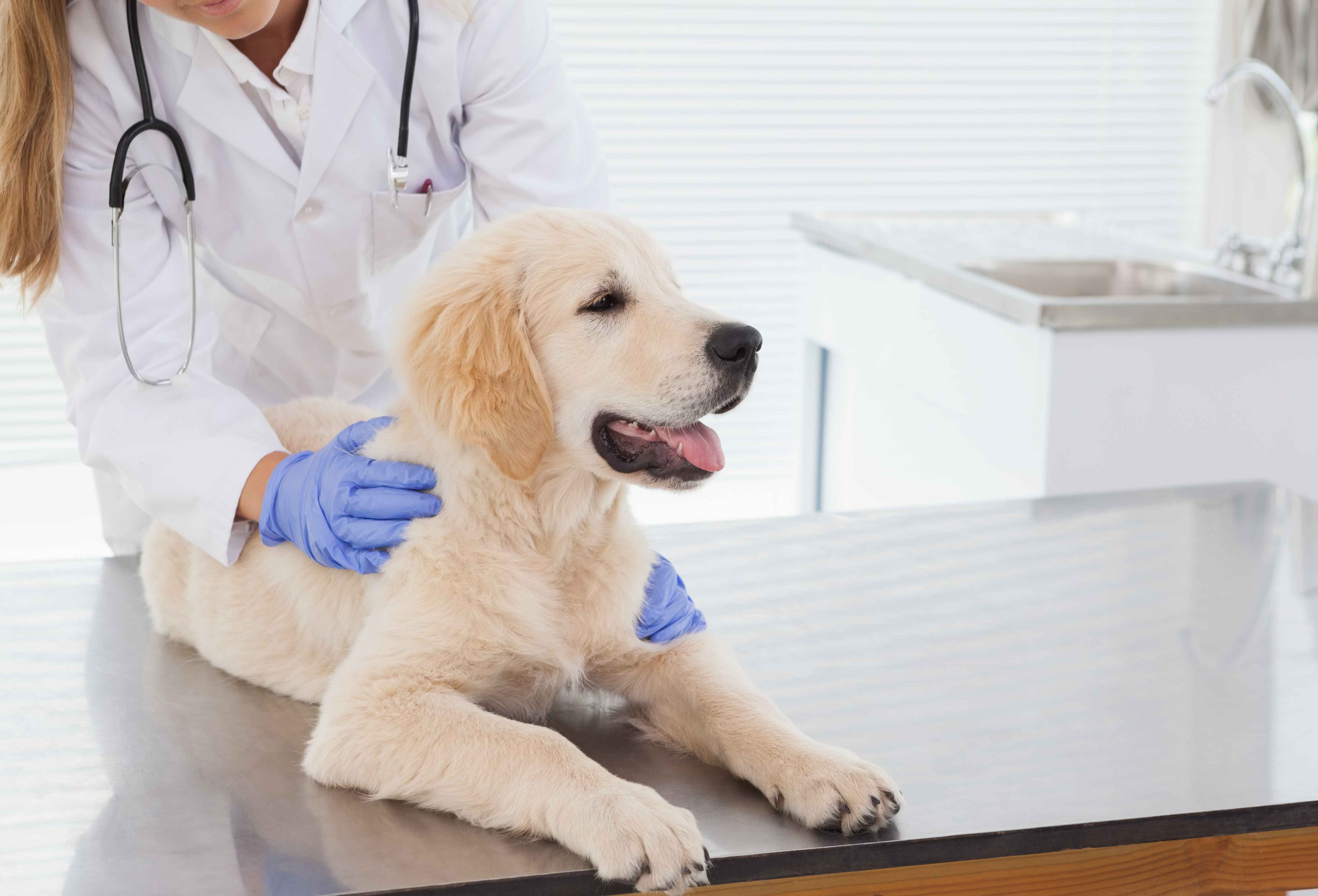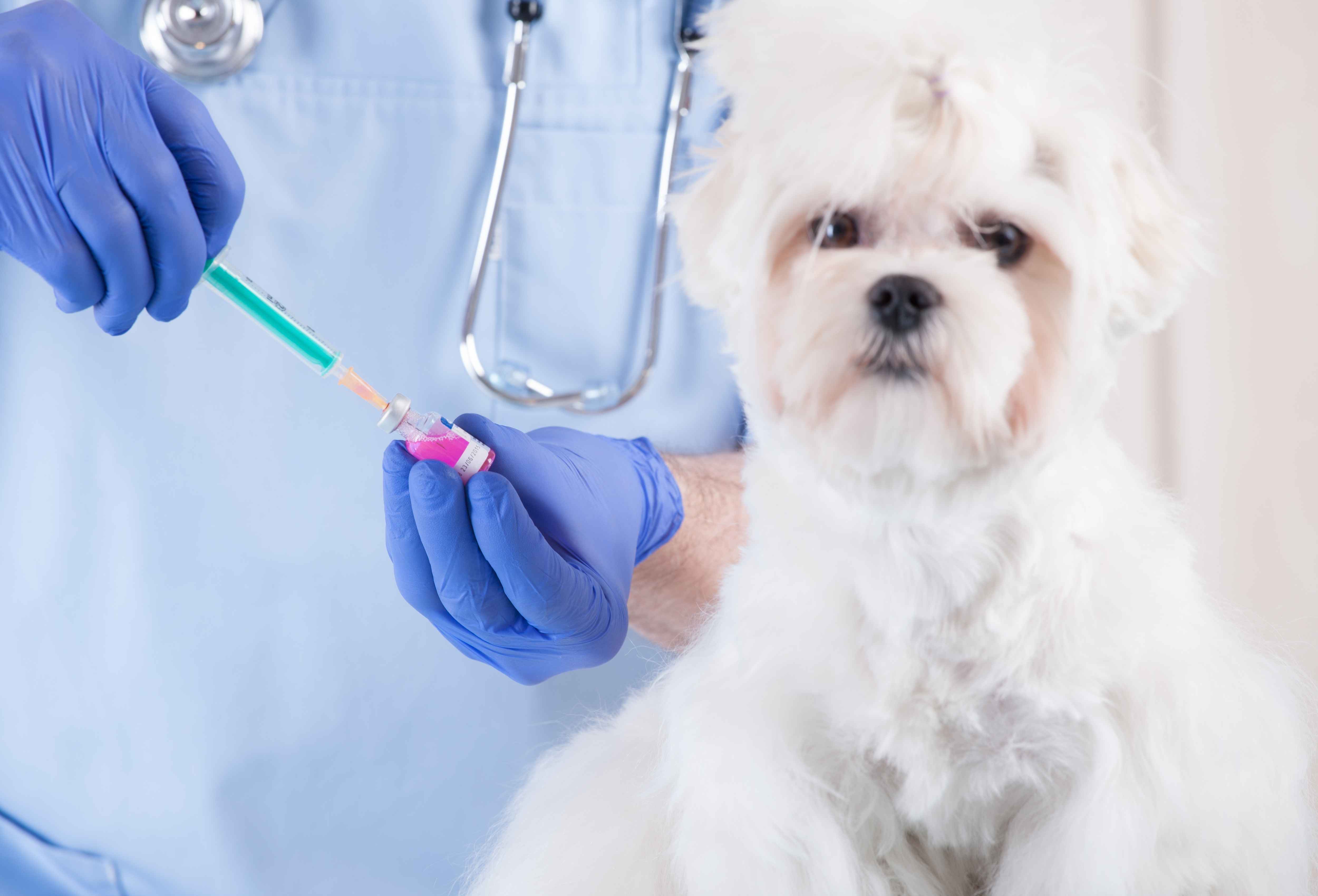DNA tests for inherited diseases in dogs
The new website for veterinary DNA tests is launched!
For the purchasing veterinary DNA tests, please use the new page and e-shop - www.vetgen.eu
If you have any questions, contact us by writing to vetgen@genera.lv or call us 26267833!
Important!
Please note: It is possible that various signs of disease, similar to those caused by one of the mutations being tested, may also develop for another genetic or clinical reason.

Autosomal recessive genetic disorders in dogs
Most igenetic DNA disorders in dogs are inherited as autosomal recessive disorders, which means that two copies of the mutant DNA are needed for the disease to develop. Carriers are dogs with one copy of the mutation - they are healthy, and such a dog can be safely mated with a completely healthy dog, which has no copy of the mutant DNA. About half (50%) of the puppies will have one copy of the mutant allele (carriers) and half (50%) will not have the mutation. Puppies that presumably have at least one copy of the mutant DNA should be tested before further mating.
Mating a carrier dog with another carrier dog is not recommended, as approximately a quarter (25%) of the resulting offspring will be puppies with two mutant alleles, which will result in manifestation of the disease.
Some inherited conditions pose a risk even if only one of the alleles is mutated, while if the mutation is in both alleles, the risk of developing or having the disease is significantly higher.
Interpretation of results
DNA tests for genetic diseases will most often show alleles of the tested gene and the related changes:
- there are no mutations in any allele (no mutation homozygous) - the dog is healthy;
- the mutation is in one of the alleles (the changes are heterozygous) - the dog is a carrier;
- the mutation is in both of the gene alleles (the changes are homozygous) - the dog is sick.
Some of the diseases tested determine the dog’s risk of developing the condition over its lifetime. In this case, the mutations will determine the possibility of risk:
- no changes (homozygous) - healthy/no risk or very low risk;
- changes in one of the alleles (heterozygous) - moderate risk;
- changes in both alleles (changes are homozygous) - high risk.

Autosomal dominant genetic disorders in dogs
Diseases that are inherited in an autosomal dominant manner are manifested even if the dog has inherited only one copy of the mutant DNA. All dogs with the mutant allele (whether one or both) are ill. It is not recommended to mate such dogs, as 50% or 100% of puppies will be sick (depending on whether a sick dog is mated with a healthy dog or sick dogs with each other, or a dog with two mutant alleles). Puppies that presumably have at least one copy of the mutant DNA should be tested before further mating.
The heritability of the disease may also vary from species to species, such as PHC - congenital cataracts or juvenile cataracts can be both autosomal recessive (in Boston Terriers and Staffordshire Bull Terriers) and autosomal dominant (in Australian Shepherds).
Interpretation of results
The interpretation of the results of autosomal dominant inherited DNA disorder testing will also show the alleles of the tested gene and the related changes:
- there are no mutations in any allele (no mutation homozygous) - the dog is healthy;
- the mutation is in one of the alleles (the changes are heterozygous) - the dog is sick;
- the mutation is in both of the gene alleles (the changes are homozygous) - the dog is sick.
Attention!
All available veterinary DNA tests are performed remotely - animals are not admitted to the laboratory!
Do you have questions about testing opportunities?
Ask us!